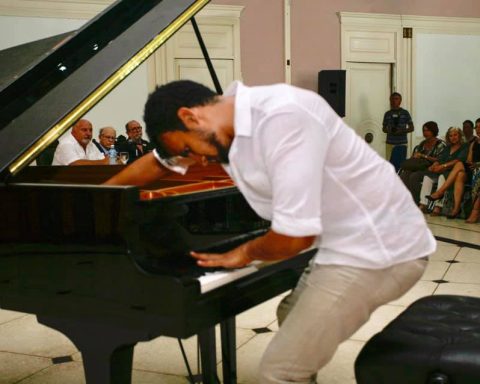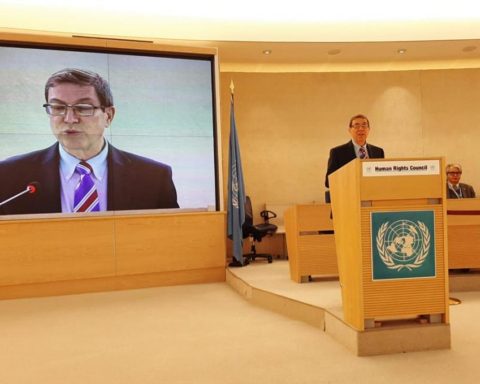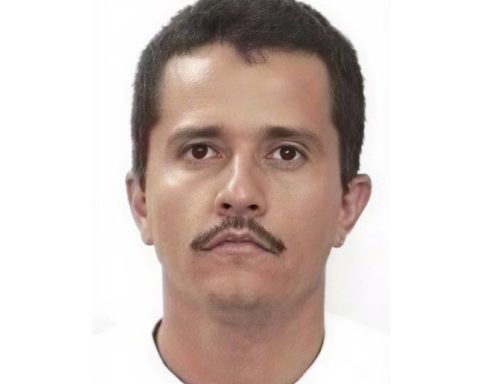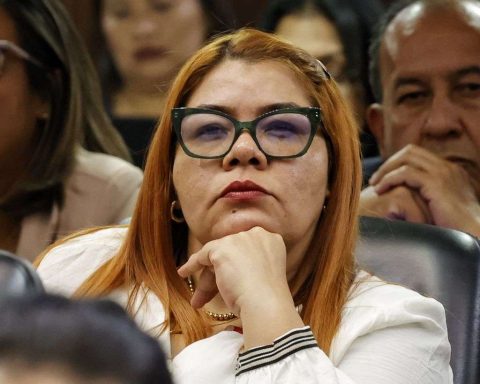On June 16, the children’s film premiered in Mexican theaters Lightyeara continuation of the famous saga toy story. In the one hour and 45 minute long film, a couple of women kiss in a scene of just 1 second. Although very fleeting, the kiss was enough for mothers and fathers to be scandalized, and for some cinemas to warn in their promotion that the film contained “gender ideology”, although no boy or girl had perceived any difference in that sample of love and affection.
The film has already been censored in 14 countries. Only 56% of Google users indicated that they liked the film, a low percentage by the standards of productions of Disney-Pixar.
In social networks, the scene was discussed, reaching the conclusion that what really triggered the concerns was an obvious lesbophobia. It is true that there may be doubts about how to respond to children when they ask questions related to sexuality in a general way and this happens because we continue to reproduce a taboo Christian morality around the subject, increasingly distant from an open and healthy comprehensive sexual education. . However, there are big differences when these questions become barriers and prohibitions that hide a true rejection of people with non-heteronormative sexualities.
The lesbophobic scandal caused by a kiss between two women in a cartoon feature film reminded me of Haymée, a dear friend through whom I understood what discrimination based on sexual orientation was.
I met Haymée in high school. She usually stood apart from the group, always with a shy smile and focused more on sports or pioneering activities than on the classroom. During breaks or morning sessions, the majority gathered around the girls who were always the center, or the men who stood out the most. She does not. She wasn’t “like the others”, but neither was I, so we’ve been on good terms ever since.
Later we got the same hostel and the same cubicle at the “Vladimir Ilich Lenin” Vocational Pre-University Institute of Exact Sciences. And there, all the young women became one, despite our great differences. Coexistence, intimacy and solidarity made us strengthen each other in the good times, and in the bad times.
And a bad one, among so many that we passed, fell to Haymée. One morning we woke up to the burlesque and unscrupulous rumor that she had been seen making out with another student. The fact constituted a scandal for those who, at the age of 15, had “never” heard of homosexual relations as something normal and common. started a bullying very cruel homophobic against her, who was also the target of expressions of discrimination in the dining room queues, in the bathroom or inside the hostel itself, by students in the same classroom and even in the corridors. Somehow they ended up disparagingly branding some of us who lived with her as “lesbians”.
There was an unspoken oath between us that needed no words: we weren’t going to leave her alone. We moved together, arm in arm, to each place. The most critical moment, after repeated teasing, was when we had to physically defend ourselves after months of exhaustion, despite the school statute, which established the expulsion of anyone who used physical violence.
We graduated; After many years I asked Haymée if she remembered those episodes and she replied that she always remembers them, because they marked her life.
We talked about that stage and also about what came after, if he felt any kind of discrimination or even some violent manifestation due to his sexual orientation. “In college at first it was complicated, because there were always people who did not understand what it was to be homosexual, but the most they could do was verbally assault me. What I can say is that, luckily, I always had friends who supported me and that helped me a lot to get ahead. In the street they have also verbally assaulted me, calling me ‘nut’ or ‘what a waste’. Although I do not publicly express my sexual inclination, I have always been respectful of others.”
Although sexual discrimination takes place from an early age in schools and by unknown people on the street, the home and family are still a means of possible hostility for people considered sexual dissidents, which sometimes leads to expulsion from their homes. . Therefore, communicating that one is homosexual constitutes a dilemma. Haymée began with her family and her closest friends, “in some cases it has not been easy, but luckily the people close to me have accepted it and have even supported me so that I don’t feel out of place, so I don’t have to hide, nor stop being me to please someone”.
In Cuba, the 2016 National Survey on Gender Equality —and the last one published to date— revealed that 77% of the surveyed population considers that homosexual people should enjoy the same rights as the rest of the citizenry, without However, only just under half of the people (49.1% of the total) said they agreed with same-sex marriage.
Haymée has lived in Uruguay for more than four years; a country that since 2013 approved the Equal Marriage Law, Since 2018 it has a Comprehensive Law for Trans Peoplewhose antecedent was the Law on the right to gender identity and to the change of name and sex in identification documents; and that also has various state programs aimed at people belonging to the LGBTIQ+ community that promotes inclusion initiatives such as job openings in the state and private spheres; among others.
Given these notable legal differences with respect to the Island, my friend shares that in Cuba “I simply adapted to put aside the obstacles and concentrate on being myself. Outside of Cuba I was able to verify that they are a little more mature regarding this issue, (…) I have not had any problem with my sexual orientation, it is a subject that is more than talked about in that country (Uruguay). There are no differences between heterosexual and homosexual people, on the contrary, in the workplace, for example, they like to have people with different sexual orientations.”
They are examples that encourage the current crossroads regarding the Family Code in Cuba, despite having a precedent that is also encouraging for the country in relation to the rights of the LGBTIQ+ population, the need to raise awareness and sensitize on issues of sexual and gender diversity, and the obligation to (un)educate the Cuban society regarding the acceptance and shelter of these discriminated communities. An example of the latter was Resolution 16 of 2021 of the Cuban Ministry of Education, from which the Comprehensive Sexuality Education Program was updated; however, it was suspended until further notice and has not yet been given the “green light” for its development.
The political knot of the referendum as a requirement for the approval of the Family Code has once again put LGBTIQ+ people, historically neglected, in a disadvantaged situation; especially taking into account the data from the National Survey on Gender Equality of 2016, and other additional data that is also unfavorable: only 31% of the total population agrees with the adoption of minors by couples formed by two men and 34.6% agree when the couple is made up of two women. Adoption by homoparental families has been another dispute in the bill.
We still do not know what the reaction of the Cuban public might be when seeing the children’s film that began this text, since the two women who show affection through a kiss also appear with a child in their arms, which sparked even more rejection. For Haymée “there are important points in the Family Code that I think should be approved, but I do not agree with something and that is that it should not be put to a vote (…) for me it should be a law already approved, because I do not think that people have the right to vote on that decision.”

It is important to remember that, despite not being formally regulated, the Cuban State has taken timid judicial and registry steps concerning the recognition of lesbian couples regarding parenting. The first was the error issued in 2017 by a municipal court that granted the guardianship and care of two girls and a boy to their grandmother Violeta Cardoso, who lived with Isabel, her “common-law partner”. Although the custody was recognized in favor of the grandmother, one of the elements that the Cuban courts evaluate for said concession is the relationship of the couple and cohabitation. The second It took place in 2020, when the Civil Registry admitted to registering and the Ministry of Justice issued the birth certificate of a child with two mothers, Dachelys Valdés and Hope Bastian.
The neoconservative outposts and religious fundamentalisms not only undermine the rights of sexual and gender dissidents. Real inequalities are also the result of our societies, which maintain conservative prejudices expressed in homophobia, lesbophobia and transphobia. That same society also makes up the institutions, the state and private work centers, the educational centers, it is present in the bus, in the warehouse, among the neighbors and among the relatives themselves.
Advancing in the full recognition of LGBTIQ+ populations constitutes a commitment of all, all and all. That is why Haymée’s last words will not be erased when I asked her how she would have liked her to have responded to that school of ours in front of the kiss of two young women. To that, she replied: “simply, (I would have liked) not to be attacked or bothered me.”

















